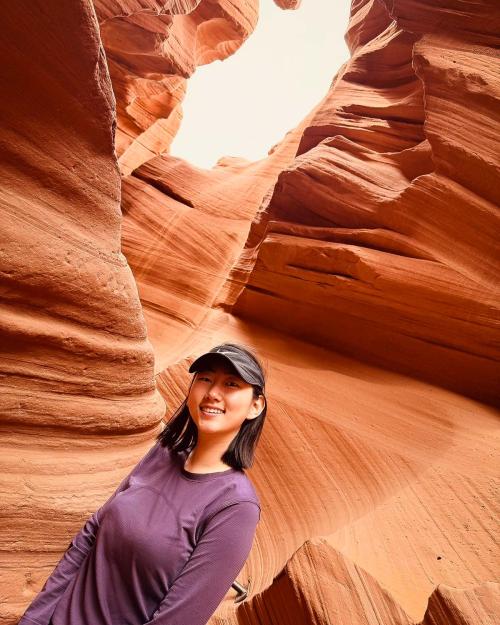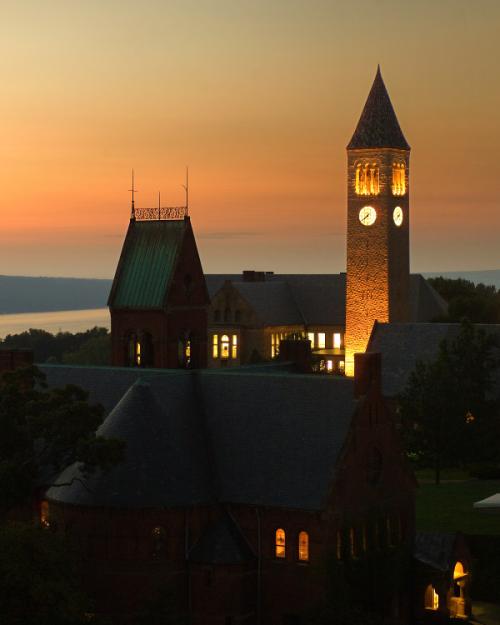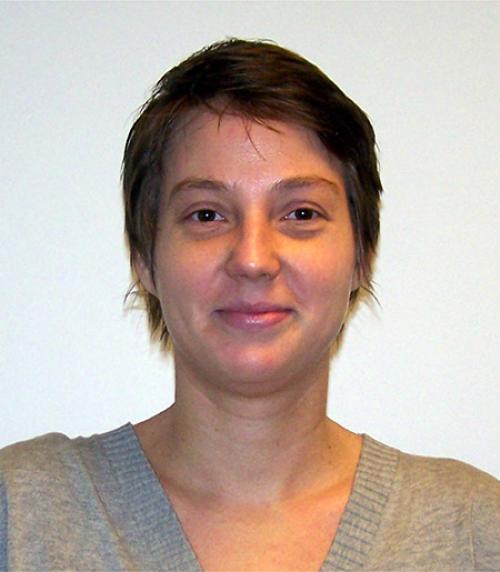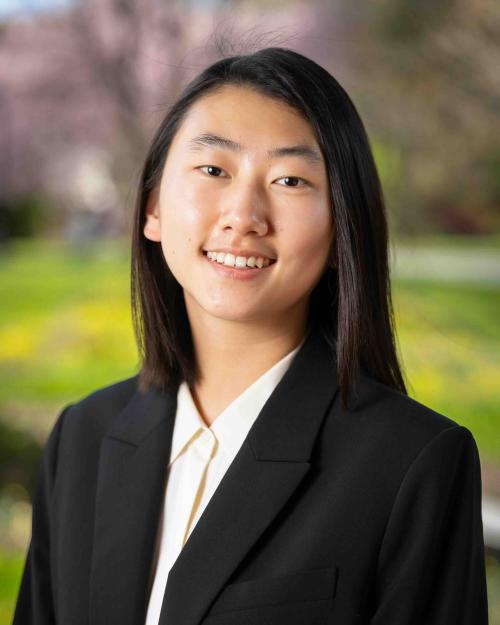Sara Yoo
Economics & Mathematics
McLean, Va.
What is your main extracurricular activity and why is it important to you?
The one extracurricular I have consistently stayed involved with since freshman year is the Cornell Economics Society. I started as an editor in the InRealTerms (IRT) Newsletter group, a weekly newsletter where members write and edit summary articles of current economic events. I then joined the Cornell Undergraduate Economic Review (CUER) group and became a referee, where I peer-reviewed economic research papers written by undergraduates from all over the country. I have taken the position of head referee since my junior year, where I lead the referees and collaborate with the CUER eboard to select the best paper submissions for semesterly publication of the journal. Through IRT and CUER in the Cornell Economics Society, I have been able to satiate my desire to learn more about current economic research and connect with diverse yet like-minded peers who share this intellectual curiosity.
What have you accomplished as a Cornell student that you are most proud of?

Since my junior year, I have been a research assistant with the “Mostly Harmless Statistical Decision Theory” group through the Cornell Hatfield Undergraduate Research Assistant Program. The team's project uses statistical decision theory to better apply data for policy decisions. I have worked with a faculty mentor in the team to code replications and conduct numerical analysis for several research papers. The topic has been challenging, and many of the tasks were initially difficult to grasp. However, I tackled them by reading related papers, asking questions and consistently attending team meetings, even if they are not directly related to my assignments. Over time, my efforts led to meaningful contributions. Small questions I raised about model parameters helped refine the scope of the problem, and some of my unexpected simulation results prompted the team to reconsider key assumptions for more complex extensions of the project. The overall experience has helped me clearly communicate and attempt new ideas as well, which are core to the research process.
How have your beliefs or perspectives changed since you first arrived at Cornell?
Before coming to Cornell, my family and I unexpectedly immigrated from Korea to a small, relatively homogenous town in the United States during my high school years. Wanting to blend in with my new peers, I worked hard to hide my Korean identity and smooth out awkward pronunciations and expressions. However, when I arrived at Cornell, I was surrounded by people speaking many different languages, including the very language I had tried to distance myself from. At that moment, I realized that my Korean roots are not something to erase or be ashamed of, but something to embrace and be proud of. Through the diverse and inclusive community I found here, I learned to not only accept who I am, but also appreciate others for who they are.
If you were to offer advice to an incoming first year student, what would you say?
I would advise them to take enough time to find their “nests” at Cornell during their first year, not just academically but also in extracurriculars. I signed up for countless emails and club applications, but I ended up missing many meetings because I was too focused on academics. It wasn’t until the end of my sophomore and junior years that I found my communities by joining Emmaus Road Church and the Cornell Running Club. While I was still able to bond with many great people and discovered a new hobby in running, I think I would have found it even more fulfilling if I had joined in earlier in my college journey.
Every year, our faculty nominate graduating Arts & Sciences students to be featured as part of our Extraordinary Journeys series.Read more about the Class of 2025.





